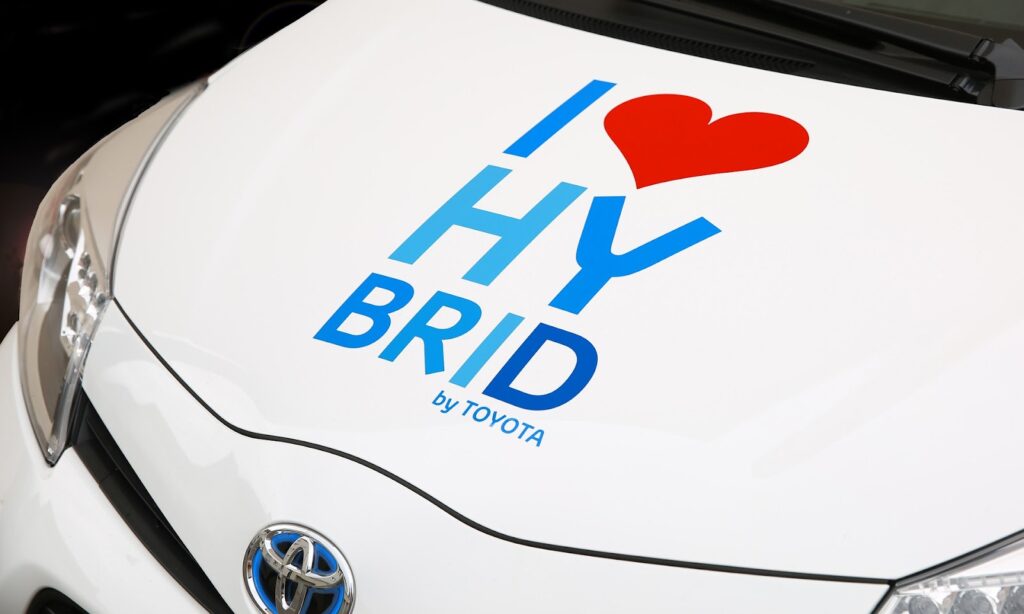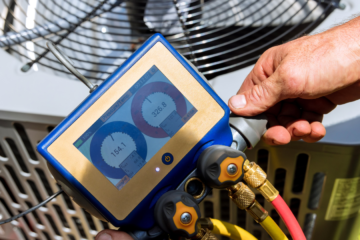When I first considered going green with my car, the allure of lower emissions, better fuel economy, and overall eco-friendliness excited me. Of course, I wasn’t alone—millions have hopped onto the hybrid bandwagon in the past few decades, transforming what was once a niche into a full-blown automotive movement. But as more of us shift, a question looms in the background: What does it truly cost to drive green? As I’ll explore, the “green” in hybrids often requires plenty of green from our wallets.
At Hybrid Battery Service, we specialize in hybrid battery service and repair for Charlotte, North Carolina, and beyond, helping drivers keep their cars running efficiently without breaking the bank. But let’s dig into the broader picture—what does driving a hybrid actually mean for the modern driver?
The Promise of Hybrids and the Green Appeal
When Toyota introduced the Prius to the U.S. market in 2000, it represented more than just a new car. The Prius was a beacon for environmentally conscious drivers, offering a vehicle that could run on electric power alone for short distances, drastically improving fuel economy. Fast-forward to 2024, the market is packed with hybrid options, from compact sedans to massive SUVs. The latest hybrid tech promises everything from reducing greenhouse gases to lowering fuel costs.

Yet, the dream of green driving has its costs—quite literally. Hybrids aren’t exactly the magic bullet they might seem at first glance. For instance, hybrid batteries come with high efficiency and replacement costs, which many buyers aren’t unaware of until a few years into ownership. So, let’s dive deep into what it takes to keep a hybrid on the road and explore the financial and environmental realities.
The Technology Behind Hybrid Batteries: More Complex Than It Seems
Hybrids don’t simply “run on electricity.” A typical hybrid car combines a traditional internal combustion engine and one or more electric motors, drawing power from a complex hybrid battery system. For example, in a Toyota Prius, one of the most popular hybrid models in North Carolina, this means a nickel-metal hydride (NiMH) or a lithium-ion battery that powers the car in tandem with the gas engine. This combination allows hybrids to switch power sources, significantly improving fuel efficiency.
But with this advanced technology comes complexity—and costs. While these batteries allow for improved miles per gallon, they’re prone to wear and tear. Unlike the battery in a purely electric vehicle, a hybrid battery constantly faces both charging and discharging cycles as it shifts between gas and electric power. This continuous cycling causes the battery’s components to degrade faster than in a typical car battery, leading to replacement costs that might shock the unsuspecting driver.
A Quick Look at Battery Replacement Costs
Hybrid battery replacement is where the “cost” of driving green comes into play. Replacing a Toyota Prius battery, for example, can cost anywhere from $2,000 to $5,000, depending on whether it’s new or refurbished. This represents a significant portion of the car’s value for some drivers, especially for older models. While there are options like Hybrid Battery Service in Charlotte for more affordable hybrid battery repair and renovation, these costs can catch drivers by surprise.
The Financial Juggle: Are You Really Saving Money?
Now, let’s tackle the burning question—are you saving money by driving a hybrid? The average hybrid driver’s answer is a classic “yes, but.” Yes, you’ll save on fuel, especially if you’re mostly driving in the city where hybrids can rely more on electric power, but higher maintenance costs can offset these savings. According to a recent report, the average annual savings in fuel costs for hybrid drivers compared to conventional car drivers is around $700 to $1,200.
Sounds great, right? When you factor in the potential for battery replacement, you may end up with only modest overall savings. Moreover, hybrid vehicles often come with higher sticker prices than their non-hybrid counterparts, meaning it might take several years to break even on your initial investment.
Real-World Example: Hybrids in Charlotte, North Carolina
In cities like Charlotte, North Carolina, where traffic congestion can sometimes rival that of larger metros, the fuel savings become particularly appealing. Hybrids excel in stop-and-go traffic thanks to their ability to switch to electric mode at lower speeds. A study by AAA showed that Charlotte drivers can save nearly 40% in fuel costs by switching to a hybrid compared to a conventional gas vehicle in similar driving conditions. However, the real savings largely depend on how much you drive and how you maintain your car.
Hybrid Battery Service in Charlotte sees customers who are shocked by the reality of maintenance costs after they’ve driven their hybrid for a few years. The initial savings on fuel do help offset these costs, but regular maintenance—especially for the hybrid battery—can be a necessary (and sometimes unexpected) part of the hybrid lifestyle.
The Environmental Reality: Are Hybrids as Green as Advertised?
One of the most significant reasons people choose hybrids is their smaller carbon footprint. Studies show that a hybrid car produces about 25% fewer CO2 emissions than a comparable gas-powered car, which is certainly a positive impact. However, there’s a downside here too. While hybrids may reduce emissions during driving, the process of manufacturing and eventually disposing of hybrid batteries can have an environmental impact of its own.
Battery Production and Recycling Challenges
Let’s talk about battery production. Hybrid batteries, whether NiMH or lithium-ion, require mining for materials like cobalt, nickel, and lithium. Mining and processing these materials isn’t exactly green. According to a report by the International Council on Clean Transportation, the manufacturing process for a hybrid battery can be as carbon-intensive as driving a regular gas-powered car for several years. Furthermore, the recycling process for these batteries is still in its infancy, with limited facilities that can handle these complex batteries effectively.
The U.S. has begun to invest more in battery recycling plants, yet the infrastructure isn’t there to handle the wave of hybrid and electric vehicles hitting the market. Although hybrids offer emissions savings during use, they aren’t without an environmental trade-off. Companies like Toyota and Tesla are investing heavily in closed-loop recycling programs to mitigate this impact, but we’re not there yet.
The Hybrid Battery Conundrum: To Repair or Replace?
The question often arises for drivers facing a failing hybrid battery: should I repair or replace? Repairing a battery can be a cost-effective option, and companies like Hybrid Battery Service in Charlotte offer hybrid battery repair and hybrid battery renovation services that can extend the life of an existing battery at a fraction of the replacement cost. But repairs aren’t always a long-term solution—some battery issues simply can’t be fixed.
Moreover, repaired batteries may not offer the same performance as a new battery, which means you could end up with diminished fuel efficiency, reducing your overall savings and possibly leading to a second repair sooner than anticipated. That’s why Hybrid Battery Service always recommends a thorough diagnostic before deciding on repair or replacement options.
Are Hybrids Right for Everyone? Exploring the Downsides
While hybrids have plenty of advantages, they may not be the ideal choice for every driver. For example, hybrid cars tend to perform best in city driving, where the electric motor can operate more frequently, saving on fuel. However, for highway drivers, the fuel savings aren’t as substantial. Unlike an all-electric car, a hybrid still relies on its gas engine at higher speeds, diminishing its fuel efficiency advantages on longer trips.
Additionally, the up-front cost of a hybrid can be a barrier. A 2024 Toyota Prius, for instance, starts at around $27,000, while a comparable gas-only compact might cost $5,000–$8,000 less. So, if you’re on a tight budget, that sticker price might make it hard to justify the switch to a hybrid, especially when you factor in potential maintenance costs, like hybrid battery replacement.
Global News and Tech Innovations Shaping Hybrid Batteries
The future of hybrid battery technology looks promising, though, with many automakers working to extend battery life and efficiency. Toyota, for instance, has announced significant investment in solid-state battery technology, which could revolutionize the way hybrid batteries perform and reduce some environmental drawbacks. Solid-state batteries, still in development, promise greater longevity, faster charging times, and improved safety. If successful, these batteries could lower the overall cost of hybrid maintenance, making hybrids more accessible.
On the recycling front, companies in Europe and Asia are pioneering advanced methods for breaking down old batteries and reusing precious metals, which helps reduce environmental impact. The EU recently implemented stricter regulations on battery recycling for all-electric and hybrid vehicles, pushing manufacturers to develop eco-friendly recycling programs. Hopefully, these advances will spread globally, making hybrid ownership even more sustainable.
The Real Cost of Hybrid Battery Replacement and Repair
For many hybrid drivers, battery replacement costs are the biggest surprise. According to data from RepairPal, the average hybrid battery replacement costs between $2,000 and $6,000, depending on the model and region. Fortunately, companies like Hybrid Battery Service in Charlotte are tackling this issue by offering hybrid batteries repair and renovation at competitive prices, making it possible for North Carolina drivers to keep their hybrids on the road without incurring astronomical expenses.
Yet, even with repair options, it’s wise to keep in mind that a hybrid battery will eventually need to be replaced. And while Toyota and Honda offer warranties covering hybrid batteries for up to 8-10 years or 100,000 miles, these warranties don’t cover the vehicle’s lifetime. For those purchasing used hybrids, it’s essential to budget for eventual battery replacement or repair to avoid unwelcome surprises down the road.
Hybrid Batteries vs. Electric Car Batteries: How Do They Compare?
In recent years, many drivers have asked whether to go fully electric rather than stick with hybrids. While fully electric vehicles (EVs) eliminate the need for gas entirely, they also come with their own battery-related issues, primarily centered around range limitations and charging infrastructure.
For example, the battery pack in an EV is usually larger and more complex than a hybrid battery, with replacement costs averaging between $5,000 and $15,000. While EV owners don’t have to worry about fuel costs, they do need access to reliable charging infrastructure, which remains spotty in certain areas. In Charlotte, North Carolina, charging stations are becoming more common, but it’s still not as convenient as simply refueling at any gas station.
Furthermore, the driving range on hybrids tends to be superior for long-distance travel, as you’re not wholly dependent on a battery. While an EV might run out of juice on a road trip, a hybrid can easily switch to gas mode and keep going, providing the convenience and flexibility that EVs currently lack. However, as EV technology advances and charging stations become more widespread, we’ll likely see a shift in the market.
Interesting Global Facts: Where Hybrids Shine Around the World
Hybrids have been embraced globally, though their popularity varies by region. In Japan, hybrids like the Toyota Prius dominate the roads, with over 40% of new car sales being hybrids. Japan’s love affair with hybrids stems from the country’s dense urban landscape and limited space for charging infrastructure, making hybrids a practical choice for eco-conscious drivers. Even Europe has been warming up to hybrids in recent years, especially as countries like Germany implement stricter emissions regulations and offer incentives for hybrid buyers.
In the U.S., hybrids have a stronghold in states like California, where environmental regulations favor low-emission vehicles, and North Carolina, where city and highway driving mix makes hybrids a versatile option. In Charlotte, hybrids offer the ideal balance of efficiency and convenience, allowing drivers to navigate city traffic on electric power while retaining the range of a gas engine for longer trips.
Hybrid Battery Service: Keeping Your Hybrid on the Road
As we’ve explored, the journey of owning a hybrid is filled with both advantages and challenges. Hybrids offer a promising solution for drivers looking to reduce emissions and save on fuel, but they require informed maintenance and occasional investment, especially when it comes to battery health. That’s where businesses like Hybrid Battery Service in Charlotte come in, providing affordable hybrid battery repair and renovation services that help drivers avoid the high costs of full replacement.
Whether it’s repairing, refurbishing, or replacing, Hybrid Battery Service ensures that your hybrid battery remains in top condition, extending the life of your car and maximizing your savings. So, if you’re considering a hybrid, remember that there are experts out there who can help you make the most of your eco-friendly investment.
Take the Next Step in Driving Green
If you’re ready to dive into the world of hybrids, or if your trusty Prius is starting to show signs of battery fatigue, consider reaching out to Hybrid Battery Service in Charlotte, North Carolina. Their expert team understands the ins and outs of hybrid technology and offers services that can save you thousands in battery costs.
In 2024, driving green will come with its share of surprises and trade-offs, but with the right support, it’s possible to embrace the future of mobility without draining your wallet. So, let’s make driving green a reality—whether you’re here in Charlotte or beyond, Hybrid Battery Service is ready to help you along the way!



